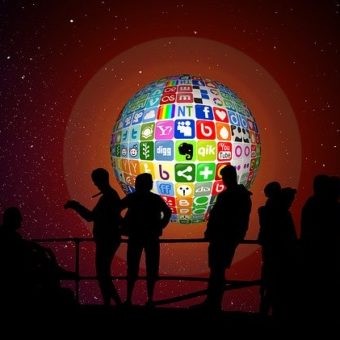Four Weekly Tech Newsletter – Aug 30
Lead articles from August 30

Visualising the social media universe in 2020
Social media has seeped into virtually all aspects of modern life. The vast social media universe collectively now holds 3.8 billion users, representing roughly 50% of the global population. With an additional billion internet users projected to come online in the coming years, it’s possible that the social media universe could expand even further. How do social networks compare?

Cyber security, cloud computing, IoT and data science are the next booming sectors
Emerging technologies have been dominating the corporate world, even before the pandemic. But the pandemic caused by the novel coronavirus brought about a massive disruption across industries, forcing even those who were far behind in terms of technology to jump on the bandwagon…

AI technologies that featured in the last Gartner hype cycle
Last week, Gartner released a unique hype cycle; for emerging technologies. It includes technologies that can completely change the direction of human civilization. “This Hype Cycle highlights technologies that will significantly affect business, society and people over the next five to 10 years,” said Brian Burke, Research VP, Gartner.

Towards a machine learning model that can reason about every day actions
Researchers train a model to reach human-level performance at recognizing abstract concepts in video. The ability to reason abstractly about events as they unfold is a defining feature of human intelligence.

AI is here. This is how it could benefit everyone...
Artificial Intelligence can improve lives, but to avoid issues such as accuracy, human control, transparency, bias and privacy challenges, its use needs to be carefully and ethically managed. One way to do this is to set up a national “Centre for Excellence” to champion the ethical use of AI and help roll out training and awareness raising.

CEOs could soon be personally liable for cyber attacks
Cyberattacks with consequences in the real world will be more common in the years to come, analysts believe. Within four years, the majority of CEOs will be held personally responsible for cyberattacks …